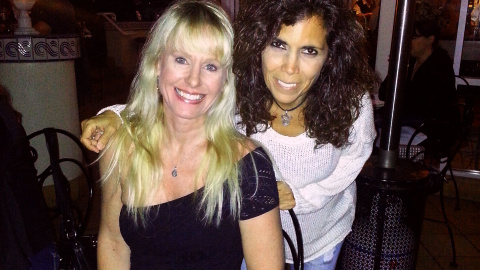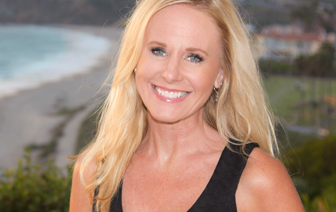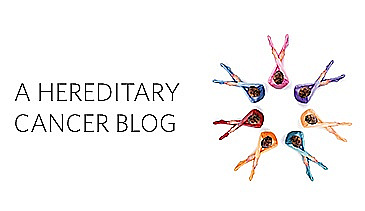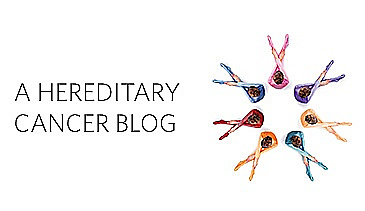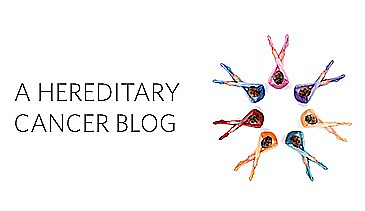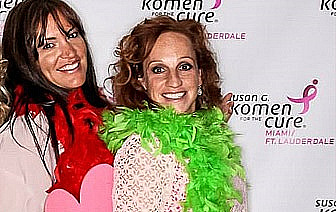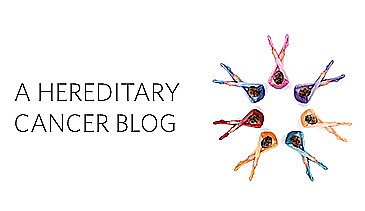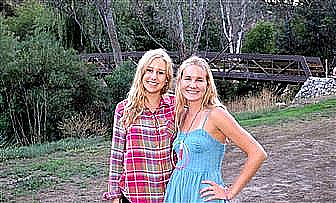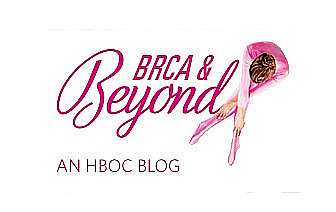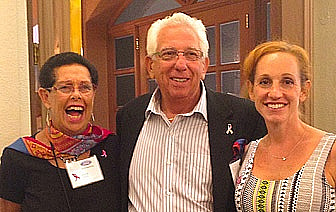- By Theresa Smith
- Posted January 26, 2016
You want to take my ovaries out?
I was diagnosed with a BRCA2 gene mutation on August 1, 2013. My surgery for a complete preventive hysterectomy (to remove my ovaries, Fallopian tubes, cervix, and uterus) was just six weeks later on September 11. I requested to undergo BRCA1/2 genetic testing as a “tie breaker” to help me decide if I should have the surgery,…
- By Theresa Smith
- Posted January 14, 2016
Watching and Waiting for Cancer
So I met all the doctors. What now? All the information and options were given to me, and it was overwhelming, to say the least. I was considering both preventive surgeries (full hysterectomy and preventive bilateral mastectomy (PBM) with reconstruction). I was playing the “odds versus timing” game in my head: “If I wait until I’m X years…
- By Dr. Robina Smith
- Posted January 13, 2016
Understanding Screening Guidelines
Cancer is smarter than man. It develops whenever it wants to without asking for permission from us. That is a fact. However, medicine has evolved over centuries to the point that we can predict which population is at risk for certain cancers. We have also developed processes that allow for us to check for the presence of cancer. This is the process…
- By Deepti Babu, MS, CGC
- Posted January 8, 2016
3 reasons why this blog is worth your time
By now, I hope some of you are coming to hereditarycancer.com regularly to poke around, and to check for new "BRCA & Beyond" posts. If you're not a regular, welcome! If you are familiar with our blog, you'll notice that I'm a new voice to the mix. My name is Deepti Babu, and I am a genetic counselor. After working with families in a hospital…
- By Dr. Robina Smith
- Posted January 7, 2016
6 questions to ask your doctor about your cancer diagnosis
Doubt, anger and confusion. These are understandable feelings to have, if you or someone close to you discovers that you/they have cancer, or may carry genes that increase the risk for cancer. What does that mean? What happens now? What is cancer? You may have been given unexpected news and may not know where to turn, who to see, or what to ask.…
- By Eve Mart
- Posted January 6, 2016
Being Your Own Healthcare Advocate
There is no manual to this cancer thing. I quickly learned that I would have to be my own best advocate. In my case, my primary healthcare physician wasn't involved in the course of my cancer treatment. Maybe my situation was atypical, given that my radiologist was the father of a close friend. I had been diagnosed with breast cancer and the pathology…
- By Dr. Robina Smith
- Posted December 31, 2015
How can I reduce my risk or prevent cancers?
These two questions are commonly asked when someone realizes that they (or their family member) have an increased risk to develop a particular cancer in their lifetime. It should be understood that every living person has a small chance to develop various cancers throughout his/her life. Cancers are a group of more than 100 diseases that occur…
- By Theresa Smith
- Posted December 29, 2015
Now that I know my DNA is messed up, what do I do next?
Sharing the news about my test results with my immediate family was tough. I'll offer some thoughts here based on my experience, but you'll know what works best for you. The adult conversations I had ended up with me being asked a lot of questions, and I didn't even yet know the answers. If this happens to you, you could consider sending adult…
- By Jessica Profato, MS, CGC
- Posted December 24, 2015
What does it even mean to have a BRCA gene mutation?
Our "BRCA & Beyond" blog continues to be a place where we discuss and share information about important topics surrounding BRCA1/2 mutations, and we hope you find it helpful. For this post, I wanted to share some scientific background with you about what it actually means to have a BRCA1/2 (often referred to as "BRCA") gene…
- By Eve Mart
- Posted December 22, 2015
The Results of Genetic Testing Impacts Lives
Before my breast cancer diagnosis, I had a brief conversation with my OB/GYN physician regarding my potentially increased breast cancer risk. I was coming up on my 35th birthday, and thought it might be responsible to schedule a baseline mammogram. I don't recall anything remarkable about that conversation with my doctor. She provided me with literature…
